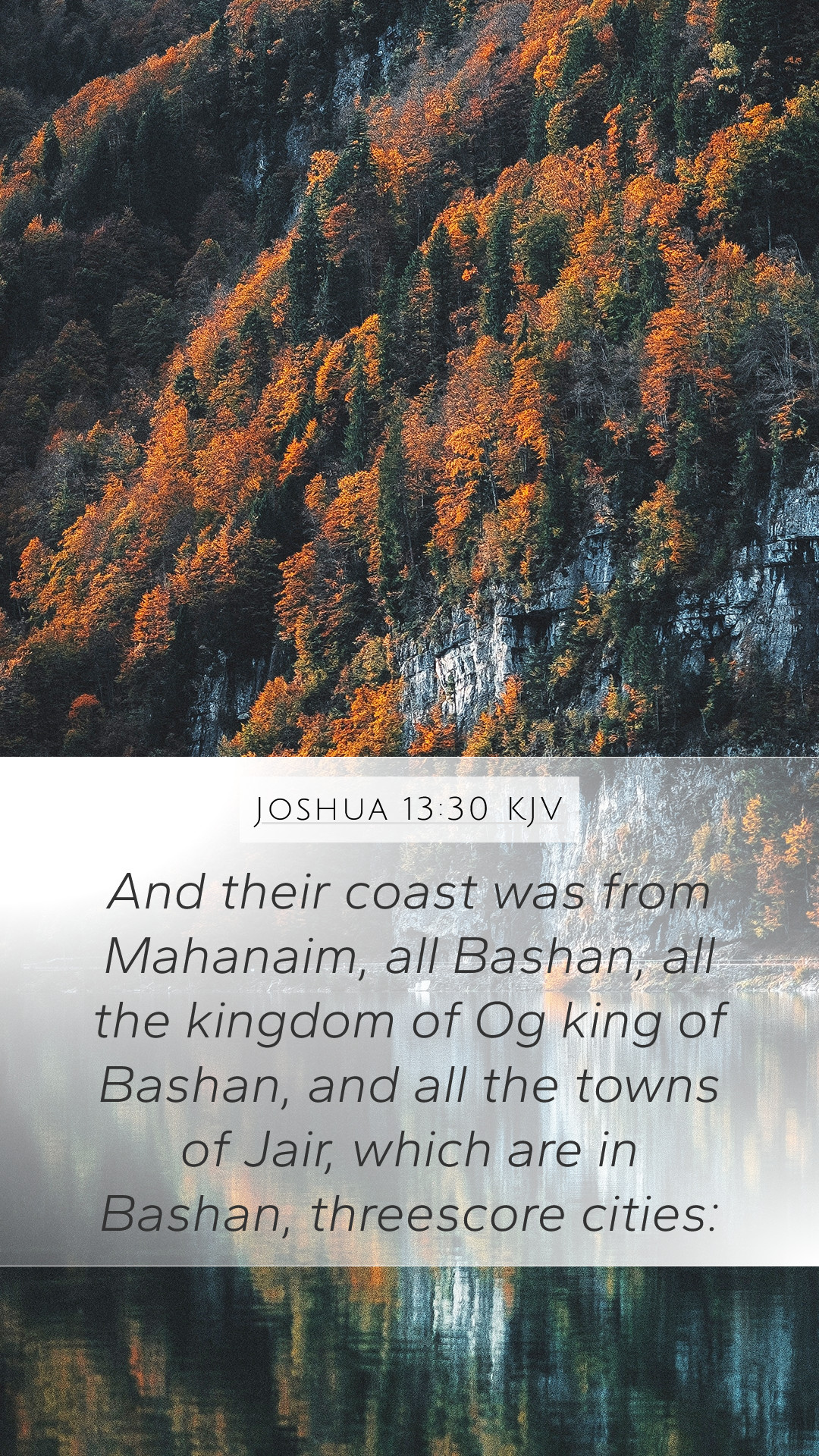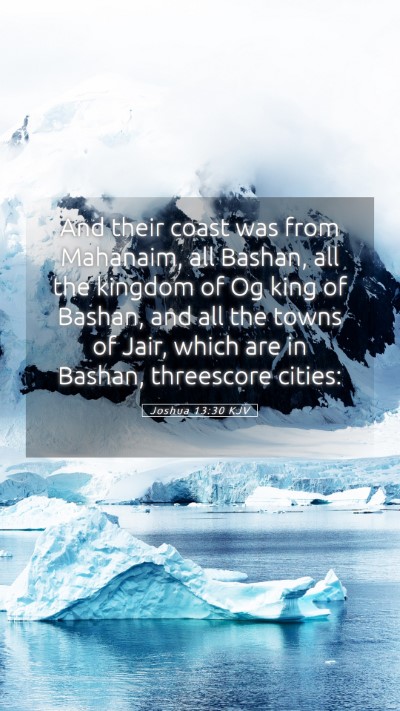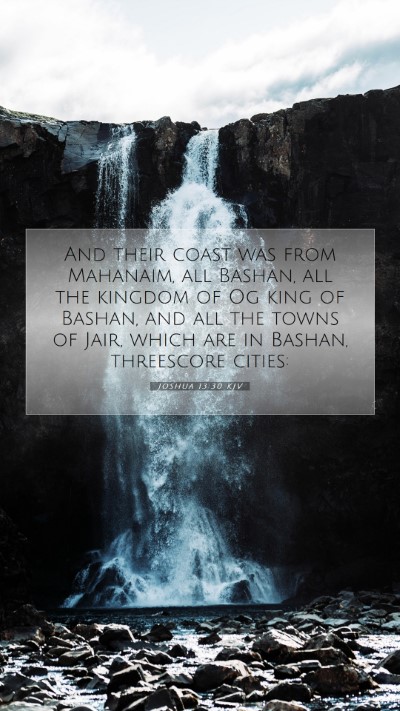Understanding Joshua 13:30
Joshua 13:30 states, "And half Gilead, and the city of the Geshurites and Maachathites, and all mount Hermon, and all Bashan which was called the land of giants." This verse is part of a larger narrative where the boundaries of the land inherited by the tribes of Israel are detailed.
The significance of this verse goes beyond mere geography; it highlights the fulfillment of God's promises to the Israelites regarding their inheritance in the Promised Land.
Meaning and Interpretation
The verse captures several important themes that contribute to our bible verse understanding:
- Historical Context: Joshua 13:30 is set within the broader context of the conquest of Canaan, emphasizing the territories allotted to various tribes. According to Matthew Henry, this reveals God's faithfulness in granting the promised land.
- Symbol of Strength: The mention of "giants" in the land of Bashan indicates the formidable challenges that the Israelites faced and highlights the strength of their God amidst overwhelming odds, as noted by Albert Barnes.
- Geographical Significance: Adam Clarke points out that the geographical references serve to remind us of the lineage of the inhabitants and God's providence in leading His people to their rightful inheritance.
- The Inheritance: This verse signifies the completion of God’s promise, affirming that He is a Keeper of His Word who provides land according to His sovereign plan, which can bring comfort and assurance to contemporary believers seeking bible study insights.
Insightful Commentary
Each commentary offers enriching insights contributing to an in-depth Bible verse analysis:
- Matthew Henry emphasizes the faithfulness of God in fulfilling His promises, noting that even the "giants" encountered, symbolizing formidable challenges, cannot thwart His plans.
- Albert Barnes adds that such mentions serve as historical markers demonstrating the richness of God's land, reminding us of the battles won and the tribes established.
- Adam Clarke explores the significance of the locations named, illustrating how they relate to the larger narrative of Israel's journey, thus providing background necessary for understanding Scripture.
Application of the Verse
The application of Joshua 13:30 in today's life leads us to consider:
- How we view our challenges (the "giants" in our lives) and whether we rely on God’s promises in facing them.
- The importance of knowing our heritage, both spiritually and physically, as this verse underlines God's ongoing relationship with His people.
- The assurance that God provides not just material blessings but spiritual ones too, as He did with the Israelites.
Cross References
Related Bible verses that enhance the understanding of Joshua 13:30 include:
- Numbers 32:33 - Discusses the division of land among the tribes.
- Deuteronomy 3:11 - Refers to Og, the king of Bashan, a notable giant.
- Psalm 22:12 - Mentions the strong and powerful, relating to the context of giants.
- Joshua 12:4-5 - Lists defeated kings, providing historical context.
- Genesis 14:5 - Mentions the Rephaim, connecting to the theme of giants in the land.
Conclusion
Joshua 13:30 serves as a potent reminder of God’s unwavering faithfulness and the inheritance He provides, prompting believers to seek Bible study resources and engage in online Bible study as they navigate modern-day challenges. The themes encapsulated in this passage encourage Bible study lessons that inspire both historical context and spiritual application.


